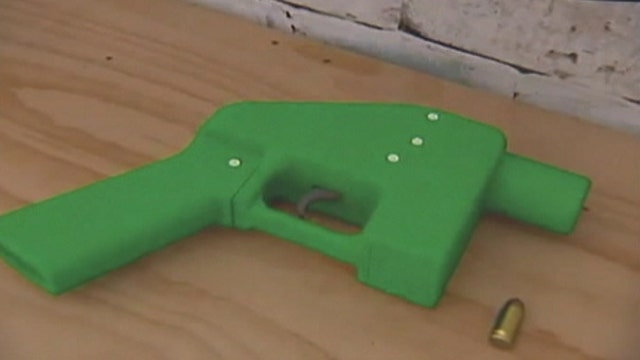Philadelphia becomes first city to ban 3D gun printing
Defense Distributed co-founder Cody Wilson on the growing legal debate over 3D printed guns.
With the stroke of a pen, Philadelphia will become the first U.S. city to ban the manufacture of firearms using three-dimensional printing technology.
In a preemptive move designed to get ahead of creative criminals, the Philadelphia City Council voted unanimously last week to prohibit the use of 3D printers to create any firearm or “any piece thereof” unless that person possesses a license to manufacture firearms. Councilman Kenyatta Johnson, author of the legislation, told FoxNews.com he expects Mayor Michael Nutter to sign the bill by the end of the year, enacting it into law. Violators could face fines up to $2,000.
[pullquote]
“We want to be proactive, we don’t want to be in a situation where people are using these 3D printers to create handguns in our city in the near future,” Johnson said. “This is us getting out in front of the issue.”
Johnson said the idea behind the bill originated following a long drive to Canada with his 14-year-old nephew, who told the 40-year-old lawmaker that plans to build 3D handguns could be found easily online.
“At first I kind of brushed it off,” Johnson said. “Then later I understood the seriousness of the problem.”
U.S. State Department officials demanded that the blueprint to build a 3D gun known as the Liberator be removed in May, but the plans had already been downloaded more than 100,000 times. Sen. Chuck Schumer, D-N.Y., is also seeking an extension on a federal law banning undetectable guns before it expires on Dec. 9.
"We are looking at a world in which anyone with a little bit of cash can bring an undetectable gun that can fire multiple bullets anywhere — including planes, government buildings, sporting events and schools," Schumer told reporters earlier this month. "3D printers are a miraculous technology that have the potential to revolutionize manufacturing, but we need to make sure they are not being used to make deadly, undetectable weapons."
The 1988 act, which was previously reauthorized in 2003, makes it illegal to “manufacture, import, sell, ship, deliver, possess, transfer or receive” any firearm that’s undetectable by scanners. If allowed to expire as scheduled, someone could legally produce and sell firearms that could potentially be smuggled onto planes, into federal buildings or at large public events.
“This is an extremely serious problem,” Attorney General Eric Holder said in a statement earlier this month. “This is a very worrisome threat to law enforcement and to people who fly every day. We can’t have guns legally in circulation that are not detectable by metal detectors.”
Anyone with about $1,000, plus the cost of printing materials, and an Internet connection can create a 3D-printed gun, although Johnson noted the cheaper alternatives like a zip gun and other improvised firearms.
“Oftentimes, we find ourselves being reactionary instead of trying to prevent the problem from forming in the first place,” Johnson said. “It is measures like this that will go toward preventing acts of violence.”
Messages seeking comment from Philadelphia Police Department officials were not returned. Johnson said no incidents involved a 3D-printed gun had been reported in the city to date.
Mark McDonald, Nutter’s spokesman, told FoxNews.com that the administration testified in favor of the bill during a hearing earlier this month. He declined to indicate whether Nutter intends to sign the bill into law or to elaborate on a timeframe.
Johnson, meanwhile, said he expects the idea to quickly spread to other jurisdictions once it does become law.
“More cities and states are going to get on board,” he told FoxNews.com. “This is going to be proactive.”


